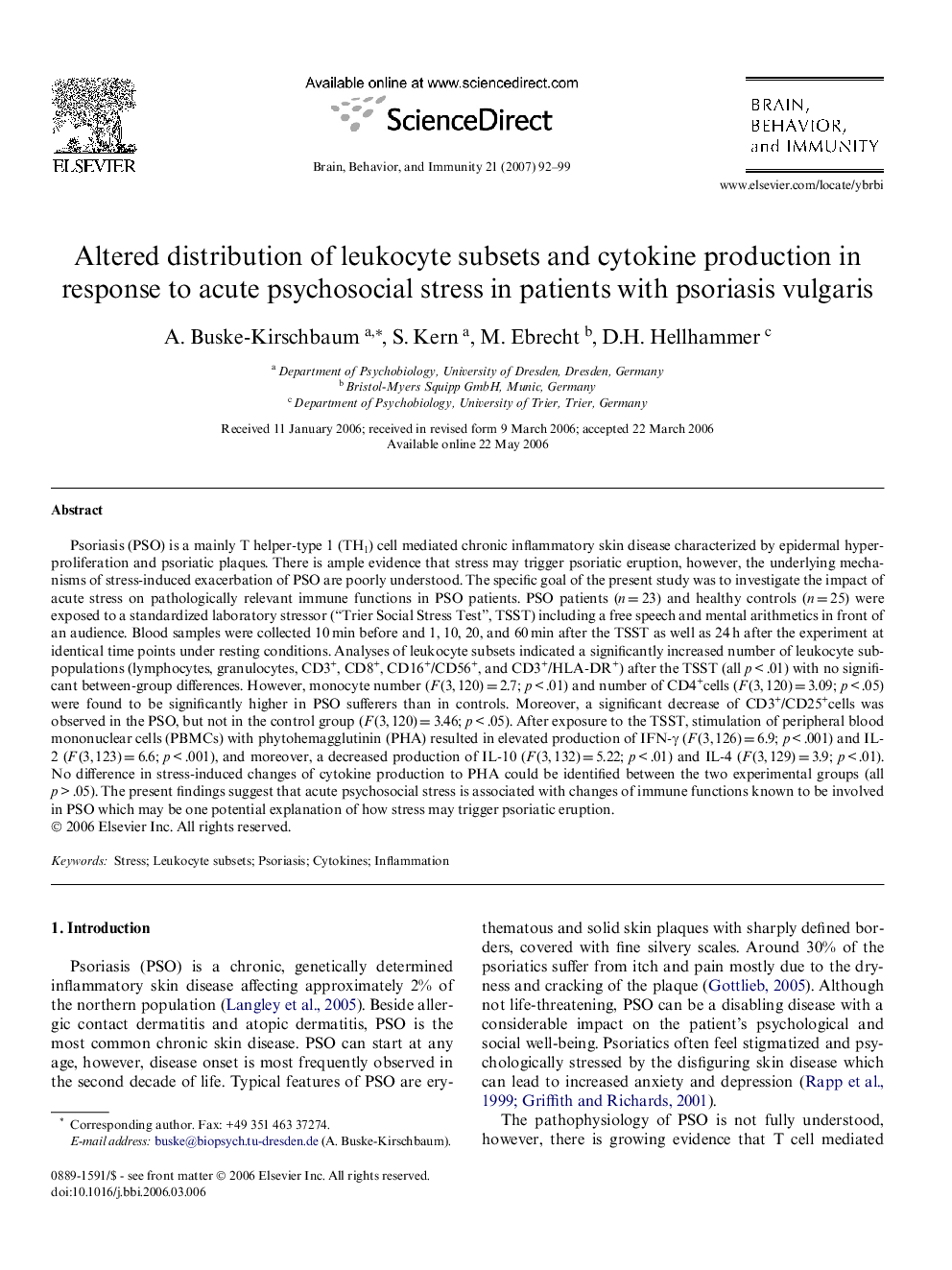| Article ID | Journal | Published Year | Pages | File Type |
|---|---|---|---|---|
| 923537 | Brain, Behavior, and Immunity | 2007 | 8 Pages |
Psoriasis (PSO) is a mainly T helper-type 1 (TH1) cell mediated chronic inflammatory skin disease characterized by epidermal hyperproliferation and psoriatic plaques. There is ample evidence that stress may trigger psoriatic eruption, however, the underlying mechanisms of stress-induced exacerbation of PSO are poorly understood. The specific goal of the present study was to investigate the impact of acute stress on pathologically relevant immune functions in PSO patients. PSO patients (n = 23) and healthy controls (n = 25) were exposed to a standardized laboratory stressor (“Trier Social Stress Test”, TSST) including a free speech and mental arithmetics in front of an audience. Blood samples were collected 10 min before and 1, 10, 20, and 60 min after the TSST as well as 24 h after the experiment at identical time points under resting conditions. Analyses of leukocyte subsets indicated a significantly increased number of leukocyte subpopulations (lymphocytes, granulocytes, CD3+, CD8+, CD16+/CD56+, and CD3+/HLA-DR+) after the TSST (all p < .01) with no significant between-group differences. However, monocyte number (F (3, 120) = 2.7; p < .01) and number of CD4+cells (F (3, 120) = 3.09; p < .05) were found to be significantly higher in PSO sufferers than in controls. Moreover, a significant decrease of CD3+/CD25+cells was observed in the PSO, but not in the control group (F (3, 120) = 3.46; p < .05). After exposure to the TSST, stimulation of peripheral blood mononuclear cells (PBMCs) with phytohemagglutinin (PHA) resulted in elevated production of IFN-γ (F (3, 126) = 6.9; p < .001) and IL-2 (F (3, 123) = 6.6; p < .001), and moreover, a decreased production of IL-10 (F (3, 132) = 5.22; p < .01) and IL-4 (F (3, 129) = 3.9; p < .01). No difference in stress-induced changes of cytokine production to PHA could be identified between the two experimental groups (all p > .05). The present findings suggest that acute psychosocial stress is associated with changes of immune functions known to be involved in PSO which may be one potential explanation of how stress may trigger psoriatic eruption.
